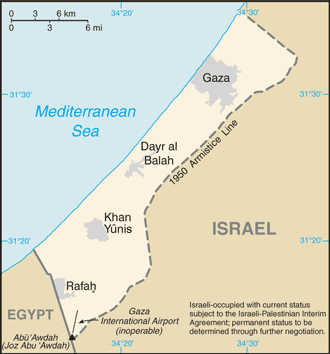While the post-coup developments in Egypt begin to unfold, there are many thoughtful commentators in the press and online essentially Monday-morning quarterbacking and speculating about what happens next. I confess, I am doing it also, see here.
There are strong opinions opposing Morsi and supporting the military coup. There are equally strong opinions supporting Morsi and opposing the coup.
It seems clear — you are either with “the people” or “with Morsi.”
False! That is a false dichotomy and simplistic and I refuse to fall into that trap.
I’m not an Egyptian and so I understand those people who discount the opinions of Westerners. I can’t vote in Egyptian elections. I can’t demonstrate in Tahrir Square. My blood is not going to be spilt. But I am a citizen of the world and I believe to the bottom of my core that we are all connected, we can all learn from each other, and we all have a responsibility to treat our brothers and sisters as we hope they will treat us.
A friend of mine from Germany supports the Egyptians on the street today demanding a new government. He asked me some very good questions.
- Is Democracy only about elections? How about behaving democratically after you have gained power?
- And what about sovereignty of the people after an election. Is it OK to establish authoritarian regimes after you gained a majority in elections? Is democracy just the rule of the majority with no rights for the minority?
- Was Hitler the legitimate ruler of Germany after March 1933 because he won the elections and had the majority behind him? Was it OK to deprive Germans of all of their rights and establish a racist order? What kind of democratic attitude is that?
Thoughtful questions deserve a thoughtful response. I’ve given it some thought.
No, democracy is not only found at the polling box on election day, although the election process is very important. In the United States, we are in danger of losing our democracy because of the money flowing into our elections (Citizens United decision) and the redistricting shenanigans and voter disenfranchisement and fraud. Elections are very important.
No, it is not OK to establish an authoritarian regime after winning an election. The Economist wrote about Turkey’s Prime Minister Erdogan who won a majority of the votes in three elections but then believed he could govern as he pleased without listening to his people. Last month Erdogan arrested the lawyers and closed down the media. And the world watched as Turks rose up and rebelled.
President Morsi failed miserably to be the President of all Egyptians. He believed his legitimacy came only from the ballot-box and he could ignore the voices calling for a secular government. I understand the opposition felt it had no choice but I wonder how much of the old guard from the old regime (Mubarak cronies) and liberal-secularists were conspiring all along to malign and demonize Morsi. And I wonder how much of the emotion on the streets was cynically manipulated. Isn’t it interesting that the fuel shortages escalated just days before June 30th but suddenly disappeared after the military coup?
The Economist writes about crass majoritarianism as a “zombie democracy.” Do millions of people in the streets = democracy? What about the millions who stayed at home? What about the millions who support Morsi?
I don’t believe Morsi won his legitimacy at the ballot-box, just as I don’t believe the millions demonstrating in the streets can strip him of his legitimacy. Sometimes leaders have to make unpopular decisions — just ask President Obama about that. The tyranny of the majority can be ugly.
What is the difference between what happened in Turkey last month and in Egypt this week? Both nations have elected leaders who believed their legitimacy came from the ballot-box and they were prepared to rule over a “zombie democracy.” Millions of people rose up, but Erdogan is still in power and Morsi is out. Why?
Perhaps because Turkey and the Turks have more experience with democratic governance, and they have the institutions (independent judiciary, media, parliament or Grand National Assembly) to check Erdogan’s abuses.
Perhaps because Turkey and the Turks do not have a military weaned on corrosive perks and power. A military coup was not possible.
Perhaps because Turkey and the Turks have a longer history of multi-culturalism and pluralism.
Perhaps because Turkey and the Turks are not suffering under the same economic woes that are plaguing Egypt.
Egyptians have a long way to go before they have anything resembling the secular democracy that Turkey has today, if that is what Egyptians want.
But what happened this week in Egypt was not democracy in action, it was a military coup. I fear the repercussions will be felt for a long, long time.



Fine commentary – coups are generally not good policy, are they? Egypt needs a George Washington or Diocletian-type – someone who will govern with an eye to what the government will be like after they’re gone. Do you think there’s anyone in Egypt who fits the mold?
Shukran (thank you!) — I have met some very thoughtful, intelligent young (20 & 30 somethings) Egyptians who can envision the path forward but I don’t know any of the current leaders or politicians, so I can’t hazard a guess to your question.
Mubarak never ran any democracy schools to prepare for a successful transition, and the US never demanded it as a condition of our largesse, as far as I know.